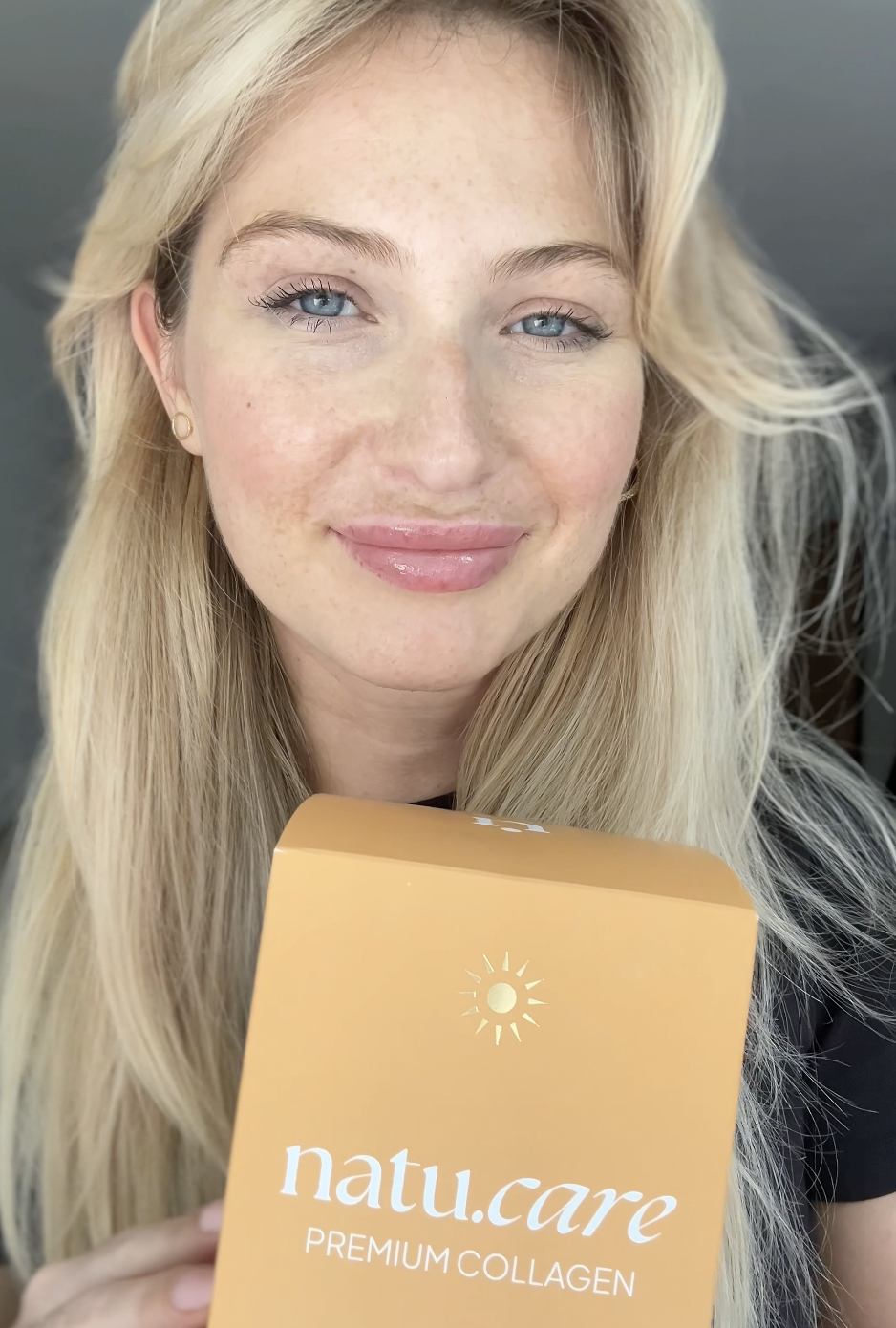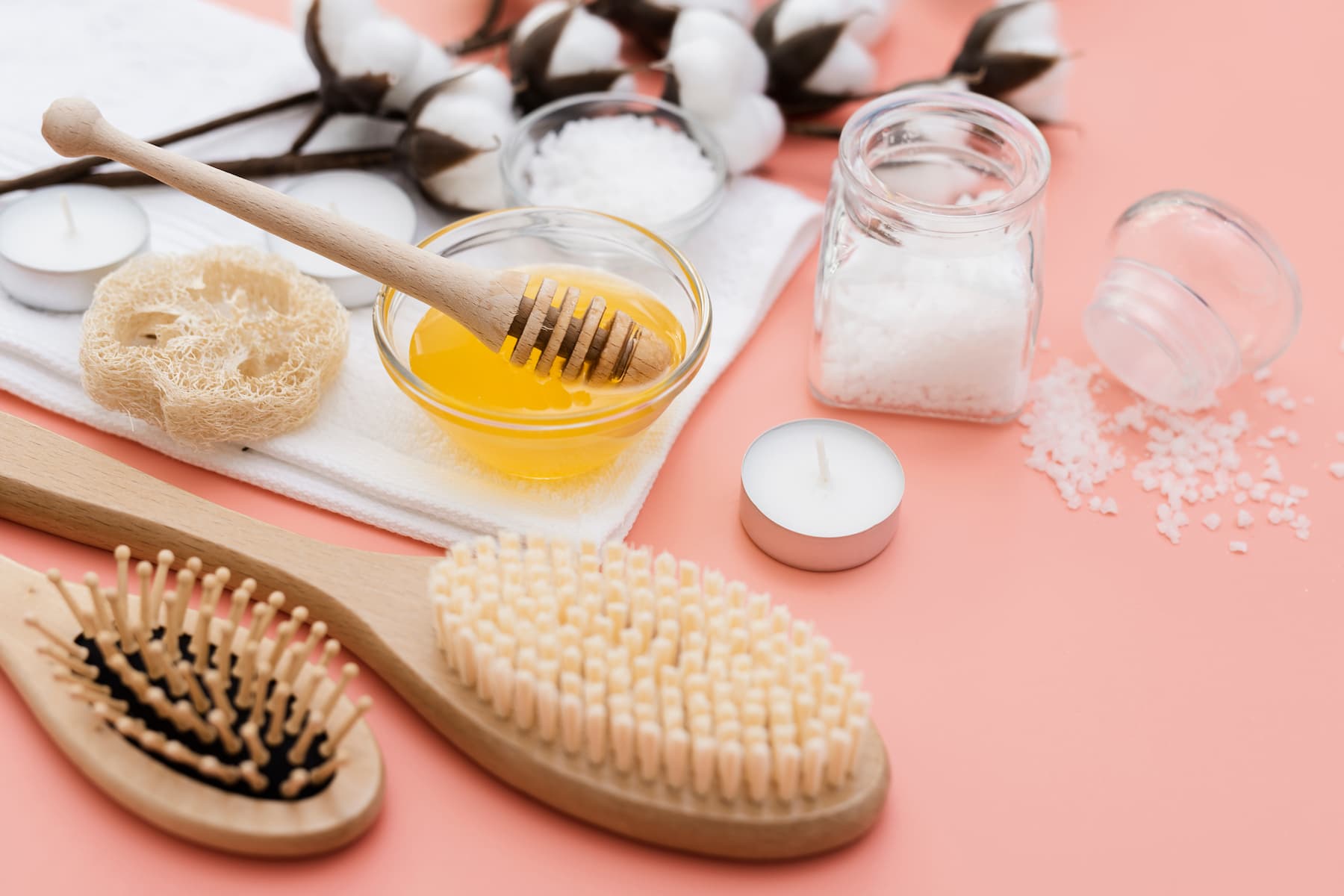Hair falling out by the handful? Find out why and what to do
Find out what to do when hair starts to fall out by the handful.


Learn more about our editorial process
.

Learn more about our editorial process
.

Learn more about our editorial process
.

Learn more about our editorial process
.
Why you can trust us
Articles on Natu.Care are written based on scientific research, data from government websites and other reliable sources. The texts are written in cooperation with doctors, nutritionists and other health and beauty experts. Articles are reviewed before publication and during significant updates.
.Learn more about our editorial process
.Information about advertisements
Content on Natu.Care may contain links to products from the sale of which we may receive a commission. When creating content, we adhere to high editorial standards and take care to be objective about the products discussed. The presence of affiliate links is not dictated by our partners, and we select the products we review ourselves completely independently.
.Learn more about our terms and Conditions
.You lose a little bit of hair every day and this is a perfectly normal occurrence. However, what can you do if you feel like your hair is falling out by the handful?
In order to effectively combat hair loss in excess, it's a good idea to start by looking at the causes of hair loss. Only once you have defined them can you implement an effective treatment. However, there are ways that can help regardless of whether the hair is falling out due to illness or nutritional deficiencies, for example.
From this article you will learn:
- What are the most common causes of hair loss.
- What are the most common causes of hair loss?
- What steps to take to find the cause of hair loss. .
- What can help in the fight against hair loss.
- What can help in the fight against hair loss?
- What impact does your lifestyle and diet have on the condition of your strands. .
- What dietary supplements and cosmetics are worth investing in for hair loss. .

Sprawdź, za co pokochały go tysiące klientek Kolagen Premium 5000 mg, mango-marakuja
Natu.Care Kolagen Premium 5000 mg, mango-marakuja
Natu.Care Kolagen Premium dla zdrowia stawów, skóry, paznokci i włosów. Najlepsza przyswajalność. Optymalna dawka 5 000 lub 10 000 mg. Przebadany przez niezależne laboratorium.
Zobacz więcej
Wybrałam kolagen Natu.Care, ponieważ miał super opinie – a to było dla mnie bardzo ważne! Odkąd go stosuję, moja skóra znacznie się poprawiła i jest nawilżona, a na głowie pojawiły się nowe "baby hair".@Kasia S.
See also:
- Conscious hair care .
- Hair loss
- Best hair loss supplements
- Hair collagen
- Glow Stories from Natu.Care - beauty encapsulated in a capsule .
Hair loss - is it normal?
.
A certain amount of hair loss each day is a perfectly normal occurrence. It has to do with the natural hair growth cycle. On average, we lose around 50-100 hairs a day, and newhairs start to grow in their place.
The problem comes when your brush starts to resemble a bunch of curls after combing, and you pull a handful of hairs out of the drain after a shower. You'll also notice their excessive shedding on your pillow and the floor of your home.
The problem is that you'll notice it on your pillow.
Over time, you may also experience thinning hair and, in some cases, a receding hairline over the forehead, enlarging bends over the temples or the presence of areas of the scalp completely devoid of hair. What the consequences of hair loss will be depends on the causeand.
Hair is at different stages of growth. If they all 'matured' at the same time we would be periodically bald. In the case of alopecia, there is often an imbalance between the growth (anagen), transitional (catagen) and resting (telogen) phases of hair..
 .
.
Ilona Krzak Master of Pharmacy
.
Causes of hair loss by handfuls
.
The causes of hair loss by handfuls can be many. Some of the most common includeand:
- .
- Stress - severe or prolonged stress causes, among other things, hormonal changes in the body, and these can cause severe hair loss. Stressful events can also cause accelerated greying of your strands.
- Scalp disorders - the health of the scalp determines the condition of the hair follicles, and they are responsible for keeping your hair growing for as long as possible. Hair loss can be caused by conditions such as scalp inflammation, dandruff, psoriasis or various types of fungal infections.
- Inappropriate, poor diet - Your body treats hair and nails as the least important parts of the body - the brain or heart is much more important. So when you provide it with too few nutrients, they are the first to feel the deficiencies. Without the right amount of vitamins, minerals and micro- and macronutrients, hair can start to fall out by the handful.
- Taking medications - the medications you are taking can affect hair loss. Often, it can occur after a few weeks of taking a particular medication. This side effect may apply, for example, to cytostatics, heparin, certain immunosuppressive drugs or those used to treat thyroid diseases. Antibiotics and long-term use of painkillers from the NSAID group may also cause hair loss.
- Other medical conditions - not only medications, but also the diseases themselves can be responsible for hair loss by the handful, even if they do not affect the scalp. Hair loss can be caused by ailments of the thyroid, liver, kidney failure or diabetes, among others.
- Hairdressing treatments - improperly performed can lead to irritation and even burns to the scalp, and will result in hair falling out by the handful. This can be caused by inappropriate concentrations of solutions used for e.g. hair bleaching or perming. .
- androgenetic alopecia -is also a disease, but deserves a separate point. Contrary to popular belief, it can affect both men and women. It is caused by too high levels of androgens and has a genetic basis. .
- Pregnancy and childbirth - during pregnancy many changes take place in the body and the hormonal balance is turned upside down. Childbirth is another aggravating event for the body, which causes further changes. It is therefore not surprising that many women start to lose their hair during pregnancy or just after giving birth. .
- Menopause -the changes that occur in the body at menopause can cause hair to weaken, deteriorate and fall out. Between the ages of 40 and 50, most women notice a deterioration in hair condition.
In pregnancy, estrogen and progestogen levels are at higher levels than in women who are not in a blessed state. Typically, pregnant women have lush hair and notice an improvement in the condition of their hair, this is due to the greater prevalence of oestrogens over androgens..
 .
.
Ilona Krzak Master of Pharmacy
.
The magic, however, breaks after childbirth, when hormones even go crazy, estrogen and progestogen levels drop sharply, while relative testosterone levels increase, which leads to hair loss. This is known as postpartum alopecia, which lasts three to six months and usually resolves spontaneously - adds Master of Pharmacy.
Hair loss vs hair breakage
.
Maybe now you're wondering: where's the subsection on inadequate hair care? Bothering your hair with daily styling routines or using the wrong cosmetics can, of course, lead to the deterioration of your hair. Hair can become dull, rough, start to split and break.
.
Well. If your hair is breaking, it may feel like it's falling out. Broken locks will also be left in the brush, in the drain and on the cushion, and your hairstyle will appear less dense.
If your hair is broken, it will be less dense.
If, however, the damage is only to the length of the hair and the scalp is healthy, the broken hair will continue to grow. This is what happens, for example, if you burn your hair with a curling iron that is heated too much.
How to tell the difference between hair breakage and hair loss? Take a look at the ones that have fallen out. If you see a tiny ball (thickening) at the end of them - the so-called hair bulb - this means you are dealing with hair loss. If this ball is missing and both ends of the hair look the same, it has probably broken.
.
In the case of hair loss, the key is to find the cause and focus on stimulating new hair growth, which will involve proper diet and scalp care. In the case of breakage, on the other hand - the main thing to do is to protect and nourish the length of the hairand. You will read more about this later in this article.
What to do if your hair is falling out by the handful
.
If your hair has started to fall out by the handful, the most important thing is to find out the cause. If you're taking any medication, consult your doctor to see if it's your medication that could be causing these side effects.
Visit your hairdresser to see if it's the cause.
A visit to the doctor can also be an opportunity to see if there is anything wrong with your body. A specialist will be able to refer you for appropriate tests.
Check-ups.
Blood checks
.
In addition to a standard blood count, if you are losing hair by the handful it is also worth checking your thyroid hormone levels: TSH and T3 and T4. It is also worth checking ferritin, iron, biotin, vitamin B12 and zinc concentrations. It may also be important to check liver parameters and those related to kidney functionand.
.
Sleep, stress and diet
.
Also take a look at how you function on a day-to-day basis. Answer these questions honestly for yourself:
- Do I get at least seven hours sleep a night?
- Do I eat enough fruit and vegetables every day?
- Do I provide myself with adequate amounts of protein and fats?
- Do I follow a restrictive weight-loss diet?
- Do I drink at least 1.5-2 litres of water per day? .
- Are I often accompanied by stress or feelings of anxiety?
Whether or not your lifestyle is the cause of your hair loss, making positive changes in this area will certainly help you in your fight to regain a lush head of hair.
What can you do to improve the condition of your hair (and your whole body)?
- Take care of sleep hygiene - go to bed at a consistent time. Two hours before going to bed, don't eat and limit your exposure to blue light - put away your phone, turn off your laptop and computer. Instead, read or try to calm down and relax. Adult colouring books, jigsaw puzzles or meditation techniques, for example, can help you with this. .
- Apply the principles of healthy eating - eat at least five portions of fruit and vegetables a day. Ensure you are getting valuable sources of protein and healthy fats. Limit your intake of red meat and processed foods, especially sweets. Drink an adequate amount of water - about 30ml for every kilogram of body weight. .
- Fight stress - We can't always avoid stressful situations, so advice along the lines of "don't stress" seems to miss the point. However, you can learn techniques for dealing with your nerves and anxieties and relieving these tensions. Psychologists or psychotherapists can help you with this - it is worth consulting them. .
Implementing these changes will not only benefit your hair, but your entire body. It will also reflect positively on your wellbeingand.
Visit a trichologist
.
If you're medically fine and your eating habits are healthy, a trichologist, an expert in scalp problems, can help you find the cause of your hair loss by the handful.
A visit to a trichologist will help you find the cause of your hair loss.
At your appointment, the specialist will perform a trichoscopy. This is an examination of the image of the scalp and hair using a special camera with high magnification. This allows any changes that are hiding underneath the hair to be visualised and the condition of the scalp and strands to be accurately assessed.
Trichoscopy is an examination of the scalp and hair.
When going to see a trichologist, it is a good idea to bring with you the results of the blood tests I wrote about above. This will allow the specialist to take a holistic approach to your problem and offer you the best solution.
Knowing your overall health and the condition of your scalp, the trichologist will be able to suggest an effective treatment. Scalp treatments, such as mesotherapy and carboxytherapy, are also available at many practices. These can help you curb hair loss and stimulate new hair growth.
Adequate supplementation
.
If your hair loss is related to vitamin and other nutrient deficiencies, you may want to consider appropriate supplementation. For hair loss, dietary supplements containing biotin can be particularly helpful. You can also choose ready-made formulas directed at improving hair condition:
.
Collagen Booster - Glow Stories

- Active ingredients: bamboo shoot extract, Quatrefolic®, L-Methionine, L-cysteine, vitamin E, vitamin A, niacin (vitamin B3), vitamin B6, vitamin B2 (riboflavin), biotin, zinc, copper
- .
- Form: capsules
- .
- Dose: 1 capsule per day
- .
- Sufficient for: 60 days
- .
Product description
A dietary supplement containing vitamins, minerals and plant extracts thatósupport the skinóhand, hair and nails. The product is especially distinguished by the form of folate – it is Quatrefolic, whichós absorbed very well and is natural.
In addition to valuable vitamins and minerals, such as vitamin A, E, B3, B2 and biotin, the formula contains bamboo shoot extract, whichóry further enhances your beauty.
Pros and cons
A dietary supplement containing vitamins, minerals and plant extracts thatósupport the skinóhand, hair and nails. The product is especially distinguished by the form of folate – it is Quatrefolic, whichós absorbed very well and is natural.
In addition to valuable vitamins and minerals, such as vitamin A, E, B3, B2 and biotin, the formula contains bamboo shoot extract, whichóry further enhances your beauty.
Additional information
A dietary supplement containing vitamins, minerals and plant extracts thatósupport the skinóhand, hair and nails. The product is especially distinguished by the form of folate – it is Quatrefolic, whichós absorbed very well and is natural.
In addition to valuable vitamins and minerals, such as vitamin A, E, B3, B2 and biotin, the formula contains bamboo shoot extract, whichóry further enhances your beauty.
Many women also experience significant improvements in hair density and growth by using collagen supplements. That's because this protein is made up of similar amino acids as keratin - the basic building block of hair.
Natu.Care Collagen Premium 5000 mg, cocoa

- Collagen content: 5000 mg marine collagen hydrolysate
- .
- Additional active ingredients: vitamin C, low molecular weight hyaluronic acid (and L-theanine and coenzyme Q10 in cocoa flavoured collagen or vitamin A and vitamin E in mango–passion fruit flavoured collagen)
- .
- Form: powder sachets
- .
- Dose: 1 sachet per day
- .
- Sufficient for: 30 days
- .
Product description
Fish collagen from the Natu.Care brand in a dose of 5000 mg, based on certified ingredients of the best quality. Regular supplementation will positively influence the appearance of the skinóry, hairów and nails – they will be rebuilt and strengthened from the inside.
In addition to collagen, which is valuable for health and beauty, it also offers other active ingredients that help to maintain a youthful complexion, shiny hair and strong nails.
The formula contains a sufficient portion of the active ingredient to positively affect joints, the musculoskeletal system and immunity.
Natu.Care Premium Collagen is available in two – Cacao Bloom and Rise&Shine flavours. Both formulas are based on the following active ingredients: marine collagen hydrolysate, wild róve bud extract and hyaluronic acid.
Additionally, Cacao Bloom contains natural L-theanine, coenzyme Q10 and defatted Dutch cacao. Rise&Shine instead contains vitamin E and vitamin A.
These are the best collagens in the world.
These best fish collagens on the market also rós taste – Cacao Bloom is a treat for chocolate lovers. Rise&Shine will appeal to those whoólike the refreshing taste of mangoófruit and passion fruit.
Pros and cons
Fish collagen from the Natu.Care brand in a dose of 5000 mg, based on certified ingredients of the best quality. Regular supplementation will positively influence the appearance of the skinóry, hairów and nails – they will be rebuilt and strengthened from the inside.
In addition to collagen, which is valuable for health and beauty, it also offers other active ingredients that help to maintain a youthful complexion, shiny hair and strong nails.
The formula contains a sufficient portion of the active ingredient to positively affect joints, the musculoskeletal system and immunity.
Natu.Care Premium Collagen is available in two – Cacao Bloom and Rise&Shine flavours. Both formulas are based on the following active ingredients: marine collagen hydrolysate, wild róve bud extract and hyaluronic acid.
Additionally, Cacao Bloom contains natural L-theanine, coenzyme Q10 and defatted Dutch cacao. Rise&Shine instead contains vitamin E and vitamin A.
These are the best collagens in the world.
These best fish collagens on the market also rós taste – Cacao Bloom is a treat for chocolate lovers. Rise&Shine will appeal to those whoólike the refreshing taste of mangoófruit and passion fruit.
Additional information
Fish collagen from the Natu.Care brand in a dose of 5000 mg, based on certified ingredients of the best quality. Regular supplementation will positively influence the appearance of the skinóry, hairów and nails – they will be rebuilt and strengthened from the inside.
In addition to collagen, which is valuable for health and beauty, it also offers other active ingredients that help to maintain a youthful complexion, shiny hair and strong nails.
The formula contains a sufficient portion of the active ingredient to positively affect joints, the musculoskeletal system and immunity.
Natu.Care Premium Collagen is available in two – Cacao Bloom and Rise&Shine flavours. Both formulas are based on the following active ingredients: marine collagen hydrolysate, wild róve bud extract and hyaluronic acid.
Additionally, Cacao Bloom contains natural L-theanine, coenzyme Q10 and defatted Dutch cacao. Rise&Shine instead contains vitamin E and vitamin A.
These are the best collagens in the world.
These best fish collagens on the market also rós taste – Cacao Bloom is a treat for chocolate lovers. Rise&Shine will appeal to those whoólike the refreshing taste of mangoófruit and passion fruit.
User review
Fish collagen from the Natu.Care brand in a dose of 5000 mg, based on certified ingredients of the best quality. Regular supplementation will positively influence the appearance of the skinóry, hairów and nails – they will be rebuilt and strengthened from the inside.
In addition to collagen, which is valuable for health and beauty, it also offers other active ingredients that help to maintain a youthful complexion, shiny hair and strong nails.
The formula contains a sufficient portion of the active ingredient to positively affect joints, the musculoskeletal system and immunity.
Natu.Care Premium Collagen is available in two – Cacao Bloom and Rise&Shine flavours. Both formulas are based on the following active ingredients: marine collagen hydrolysate, wild róve bud extract and hyaluronic acid.
Additionally, Cacao Bloom contains natural L-theanine, coenzyme Q10 and defatted Dutch cacao. Rise&Shine instead contains vitamin E and vitamin A.
These are the best collagens in the world.
These best fish collagens on the market also rós taste – Cacao Bloom is a treat for chocolate lovers. Rise&Shine will appeal to those whoólike the refreshing taste of mangoófruit and passion fruit.
Important!
.When taking more than one dietary supplement, check the composition of the preparations carefully and ensure that the active substances are not repeated in them. This may lead to taking too high a daily dose of the repeated ingredient.
It is worth emphasising that when we are deficient in vitamins and micronutrients, supplementation will make up for the basic deficiencies first and then for the nourishment of the hair, skin or nails. Topical preparations are more effective in this case - they will have a quicker effect, as the 'internal needs' of the body are then bypassed..
 .
.
Ilona Krzak Master of Pharmacy
Scalp massage
.
Whether you use one of the off-the-shelf scalp massagers or your own fingers to massage your scalp, it is worth spending a few minutes a day on this small (and very pleasant) treatment.
Scalp massage improves the microcirculation of the scalp and thus contributes to better oxygenation of the hair follicles and the supply of more nutrients to them. This simple method is at the same time one of the most effective when it comes to stimulating new hair growth.
And how to massage? Use circular motions, aiming from the forehead towards the nape of the neck and then down the sides of the head - from the temples downwards. Don't press too hard - massage gently, so that it feels nice.
Patients
.
To intensify the effect of a scalp massage, apply a nourishing scalp pack to your scalp before you start. Ideally, choose one that is formulated to inhibit hair loss or stimulate hair growth.
What ingredients to look for in such rubs:
- warming (e.g. paprika extract, cardamom), .
- field horsetail, .
- clover, .
- biotin, .
- fenugreek, .
- bloom, .
- black turnip, .
The rub is applied to the scalp only. It is then massaged into the scalp. Most of the rubs do not need to be rinsed out and are suitable for application with both wet and dry hair.
The scalp is the 'epicentre' of hair growth. External formulations, especially in the form of oils, will have a much quicker effect, as the cell membranes are lipophilic and absorb substances of a lipophilic nature better..
 .
.
Ilona Krzak Master of Pharmacy
Patience
You will have to wait for the results of using scalp rubs and massages. Nothing will happen overnight, but your patience and regularity will be rewarded. Hair grows 1-1.5 cm per month.
Cosmetics for brittle hair
.
What if your hair isn't falling out from the roots, but is breaking at an extreme rate? If the problem is due to damage to the strands at a particular length (e.g. burning them when styling), consider... visiting your hairdresser. Unfortunately cutting hair is sometimes the only way to improve the appearance of your hair and stop losing it all over the place.
For less damaged strands, or when the problem is damage to the entire length of the hair, cosmetics that surround the hair with a protective coating and temporarily fill in the gaps in its structure will help. The best products for this are those with silicone.
.
Yes, silicone is not the enemy of hair care, contrary to the black PR it once attracted on beauty websites. You just need to know how to use it. First of all, cosmetics with silicone do not apply to the scalp. It is best to apply them from the middle of the hair length or about ear height.
.
Hair breakage is also promoted by split ends. A split that started at the end of a strand often spreads to higher and higher parts of the hair over time. To prevent this, have damaged ends trimmed regularly by your hairdresser. You can also use sera for the ends, e.g. with silicone (yes, again) or silk.
Fragile, damaged hair also needs a solid dose of proteins, humectants and emollients. Don't forget nourishing and regenerating masks and conditioners. Good results can also come from oiling your hair, which will improve elasticity and add shine.
Useful hair care habits
.
If you have a problem with your hair falling out by the handful, it's not worth making matters worse by killing it with the wrong hair care. Check out five simple tips to help you take care of your hair on a daily basis:
- The hairdryer is not the enemy - wet hair is more susceptible to damage, and a damp scalp is the perfect breeding ground for bacteria and other pathogens. You want neither. Therefore, dry your hair after every wash. However, set your hair dryer on a low temperature. The cool airflow will also close the hair's cuticles. .
- Be careful with your towel - the surface of towels is quite rough and can damage your hair. So try to squeeze out excess water after washing and under no circumstances rub your hair. You can also replace a traditional terry cloth towel with one specially designed for hair - smooth and cotton. An old cotton t-shirt will also work perfectly in this role. .
- Good brush and softness - it turns out that bristle brushes are not so good at all. Instead of separating and detangling hair, they scrub at the surface of the hair, damaging it. Choose brushes with pins for combing, and select the density and length for your hair type. Comb your hair gently, without tugging. Start at the ends and work your way up. .
- Wash more than just your head - remember to regularly change the towel you use to wipe your scalp and hair, and clean the brushes, combs and massagers you use at least once a week.
- Take a look at your pillowcase - some types of fabric can be rough and micro-damage can form on your hair with prolonged use of pillowcases made from them. This applies, for example, to bark bedding, which is characterised by an uneven surface. For your hair, a pillowcase made of silk (in the budget version, satin) is best. Your skin will also thank you for it. .
Summary
.
- Hair loss is a normal phenomenon, related to the hair growth cycle. On average, each of us loses 50-100 hairs per day.
- It is a normal occurrence.
- Increased hair loss can have a number of causes: from illnesses and medications taken to an unbalanced diet, hormonal changes or experiencing chronic stress.
- If hair loss has started to occur, it is normal.
- If your hair has started to fall out in handfuls, it is worth seeing your doctor for a check-up and to rule out more serious conditions.
- The cause of hair loss can help you determine the trichologist. The specialist will also recommend the appropriate treatment.
- The following is a recommendation.
- To reduce hair loss and stimulate new hair growth, it is advisable to perform a scalp massage, enriched by the use of scalp rubs. .
FAQ
.When is hair loss a concern?
.It is normal to lose hairs 50-100 per day, but these figures can vary from person to person. There is no point in counting the hair lost. Rather, focus on the overall impression - are you starting to find them on your pillow and on the floor? Are there more of them left on the brush after combing?"
.It is also worth noting the additional symptoms that accompany hair loss. A worsening of your general well-being or skin changes on the scalp may be indicative of illness. If this is the case, it is advisable to visit a doctor for appropriate examinations and further diagnostics.
What disease causes hair loss?
.Hair loss can accompany conditions such as thyroid disease, other autoimmune diseases, liver disease, kidney failure, diabetes, dermatoses affecting the scalp.
Hair loss can also be associated with the following conditions.
Increased hair loss hair loss can also be influenced by medications taken to treat completely different diseases.
What is missing in the body when hair falls out?
.Hair loss can result from deficiencies of vitamins, minerals, inadequate supply of protein and other nutrients. Pay particular attention to ingredients such as biotin, vitamin B12, iron, zinc and copper.
What are the best herbs for hair loss?
.To combat hair loss, herbal rubs, teas or rinses can help you. The following are particularly valuable:
Horsetail - the true king of caring for hair. It nourishes the hair follicles, promoting hair strand growth. Normalises the sebaceous glands, which can help with oily hair and dandruff.
Nettle - rich in nutrients to support skin and hair health, helps to strengthen hair follicles.
Root - contains vitamin C, antioxidants and fatty acids to support healthy hair growth.
Sage - helps regulate the sebaceous glands of the scalp and prevents excessive hair loss.
Rosemary - improves blood circulation in the scalp, which promotes healthy hair growth.
Does hair fall out from stress?
.Yes, stress can contribute to hair loss. During stress, the body produces a hormone called cortisol, which in excess can interfere with the hair growth cycle, causing hair loss.
Also, stress can lead to increased production of free radicals in the body, which can also have a negative impact on hair condition. Therefore, it is important to try to reduce stress through healthy coping strategies, such as regular exercise, meditation and time spent relaxing. Taking care of your mental health can help you maintain healthy hair.
What hormones are responsible for hair loss?
.Hormones that are often implicated in hair loss are dihydrotestosterone (DHT) and estrogen. DHT is a form of testosterone that can shorten the life cycle of the hair and lead to weakened hair follicles. Estrogen imbalance can also contribute to hair loss.
Also, thyroid hormones can affect hair condition - hyperthyroidism or hypothyroidism can lead to hair problems. It is also worth keeping an eye on cortisol levels, which in excess can negatively affect the condition of strands. It is therefore important to monitor the levels of these hormones and, if necessary, consult a doctor for appropriate treatment.
Can hair loss occur with neuropathy?
.Yes, hair loss can be associated with neurosis. During chronic stress and anxiety, the body can react with increased hair loss. This is primarily influenced by the hormone cortisol, which increases in stressful situations and can disrupt the life cycle of the hair.
Additionally, stress can lead to a poor diet and reduced intake of certain nutrients that are important for hair health. Therefore, it is important to manage stress through relaxation techniques, a proper diet and regular physical activity to minimise the potential hair loss associated with neuropathy.
The following is an example of this.
Sources
.See all
.Gokce, N., Basgoz, N., Kenanoglu, S., Akalin, H., Ozkul, Y., Ergoren, M. C., Beccari, T., Bertelli, M., & Dundar, M. (2022). An overview of the genetic aspects of hair loss and its connection with nutrition. Journal of Preventive Medicine and Hygiene, 63(2S3), Article 2S3. https://doi.org/10.15167/2421-4248/jpmh2022.63.2S3.2765
Hair loss: Diagnosis and treatment. (n.d.). Retrieved March 6, 2024, from https://www.aad.org/public/diseases/hair-loss/treatment/diagnosis-treat
Lin, R. L., Garibyan, L., Kimball, A. B., & Drake, L. A. (2016). Systemic causes of hair loss. Annals of Medicine, 48(6), 393-402. https://doi.org/10.1080/07853890.2016.1180426
Müller Ramos, P., Melo, D. F., Radwanski, H., de Almeida, R. F. C., & Miot, H. A. (2023). Female-pattern hair loss: Therapeutic update. Anais Brasileiros de Dermatologia, 98(4), 506-519. https://doi.org/10.1016/j.abd.2022.09.006
Nestor, M. S., Ablon, G., Gade, A., Han, H., & Fischer, D. L. (2021). Treatment options for androgenetic alopecia: Efficacy, side effects, compliance, financial considerations, and ethics. Journal of Cosmetic Dermatology, 20(12), 3759-3781. https://doi.org/10.1111/jocd.14537
Ohyama, M. (2010). Management of hair loss diseases. Dermatologica Sinica, 28(4), 139-145. https://doi.org/10.1016/S1027-8117(10)60032-8
Phillips, T. G., Slomiany, W. P., & Allison, R. (2017). Hair Loss: Common Causes and Treatment. American Family Physician, 96(6), 371-378.
Sadgrove, N., Batra, S., Barreto, D., & Rapaport, J. (2023). An Updated Etiology of Hair Loss and the New Cosmeceutical Paradigm in Therapy: Clearing 'the Big Eight Strikes'. Cosmetics, 10(4), Article 4. https://doi.org/10.3390/cosmetics10040106
Wall, D., Meah, N., Fagan, N., York, K., & Sinclair, R. (2022). Advances in hair growth. F1000Prime Rep, 11(1). https://connect.h1.co/prime/reports/b/11/1/
..
Editorials
Meet the team

Ilona Krzak obtained her Master of Pharmacy degree from the Medical University of Wrocław. She did her internship in a hospital pharmacy and in the pharmaceutical industry. She is currently working in the profession and also runs an educational profile on Instagram: @pani_z_apteki


See how to effectively moisturise dry hair.
![Hair oiling: overnight, wet, dry [home remedies].](https://cdn-resources.natu.care/uploads/1/side_view_man_hair_slugging_night_routine_1_95e3d6a24c.jpg)
Everything you need to know to do hair oiling at home.

Before you click Buy Now at the online drugstore, check what hair 'cosmetics' you can find in your kitchen.
